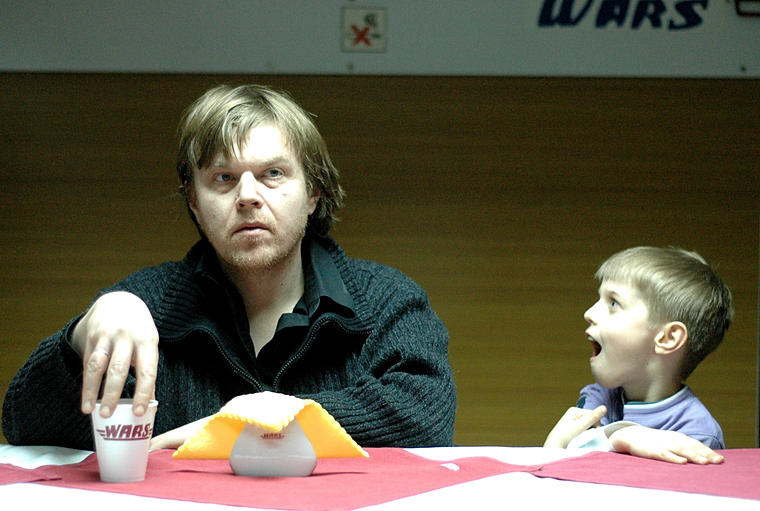
Arvo Pärt

I probably had only a-prioris about Pärt and his music until I started to adapt for guitar this new series. Most of the early-music series (and derived since, any other classically scored music from medieval to contemporary) I produce are based on vocal choir music. Just because it happens that usual Choirs range exactly matches the guitar, and more particularly the Open String range of the Instrument (Say Root Positions, Open E-A-G-C-D-B etc), and Pärt's music contains a very large section of Chorale Music. So I simply decided to try.
The way I work with in the early-music series is extremely simple. I currently Search for all sorts of possible repertoires based on Periods, Names of composers that I heard since childhood but not always really being able to have any overview on their works, and technically : Chorales or Vocal Music (SATB, Soprano, Alto, Tenor, Bass, the most common form). Since couple months I decided to enter the very final chapter of this work, to also take some distance with it and see where this could later take me. Also because this work can be absolutely endless, each composer, moment, city, etc. opens systematically on another chapell when not cathedral of works, just like russian matriochkas. But since I started, or at least during this whole process, came a pretty long list of works I wanted to record and confront. Arvo Pärt was never one, It just came now.

Since couple years we started to regularly play with the Polish duet, Wroclaw based, Mikrokolektyw (Artur Majewski and Kuba Suchar). Every moment we spend together is full of questions, talks, blazing ideas and doubts too about this world we live in, and in our case this world we cross through while touring. Once Kuba asked me how I liked Arvo Pärt and I got this immediate reaction in me that this was really New Age Archetypal ECMish crap music. But I shut my mouth and a different part of my cortex came into action telling me that I had absolutely no idea what Pärt's music sounded like. I never had ever listened to it in fact. All I knew was pure clichés based on total a-prioris and maybe once a long long time ago, I must have been in some huge record store (when they still existed, like the famous Saturn in Cologne) that played some Pärt in the background, and looking at the cover of the album, I closed the case by stamping it: No Thanks.
The great thing about letting Clichés frame your mind is that its a total open call for revision always. So I decided to go and see, try, experience myself and see how it is in my own terms. And what I now discovered is extremely interesting. Pärt's works, in his own text, resembles a gesture that I've been playing and recording a lot lately, and that is Renaissance and Pre-Renaissance music. Few lines, each extremely dense, no fioriture and ornaments, a serious touch of mysticsm when not simple faith. His music is openly sustained by very simple themes, a large part of it is dedicated to nature and god. And very naturally the rest of it is for the people he lives and loves. So far many of his compositions seems to be stepping in the sky, many different stages and depths of skies in fact. Its contemporary music that has not time, because it could have been played and composed three thousand years ago probably the same way.

Pärt uses very clear compositional tools, and as often to get to the most simple result requires all your attention and precision. There is no concept but life and nature with him. His skills are only here to consolidate his journey through life and earth it seems. Certain moments rejoins a sound that one may call “pop”, although it isn't really pop for me but rather simplicity of beauty. Reject the refusal of it, let yourself totally open to what outside may bring you. Concretely it is incredibly well written, because every line seems to suite you intimately and therefore when a small cadence or harmonical movement arrives its effect is just like close to holystic.
Pärt also uses a lot of variations in his metrics, you constantly move between 6/4, 4/4, 1/4, 3/4, 2/4 in a same phrase but all following his melodical line and never the other way around, which too many times happens in modern compositions, creating artificial accidents usually. Pratically Pärt really fully opened my sense of ranges, forcing me to play really beyond what I usually do (but this is a topic i'm totally dedicated to since some time). With him i became more fluent with the totally up register, the complete second octave (from highest G to last fretted note, the C on 20th Fret – see Score Pics). So that I decided to continue recording his music. I Finished a Works Vol.1 already, Works Vol.2 are close to ready, his Te Deum is already out and I expect 4 to 5 more albums to come. I've ordered quite a lot of his printed scores slowly arriving now.

Noël Akchoté. French guitarist, violinist and producer, born December 7, 1968, in Paris, active in various experimental fields between drone, rock, jazz and contemporary classical music. Also music journalist and author as well as founder (together with Quentin Rollet) of the French avantgarde label Rectangle. Currently running the label Noël Akchoté Downloads. He is the brother of electronic musician SebastiAn.

